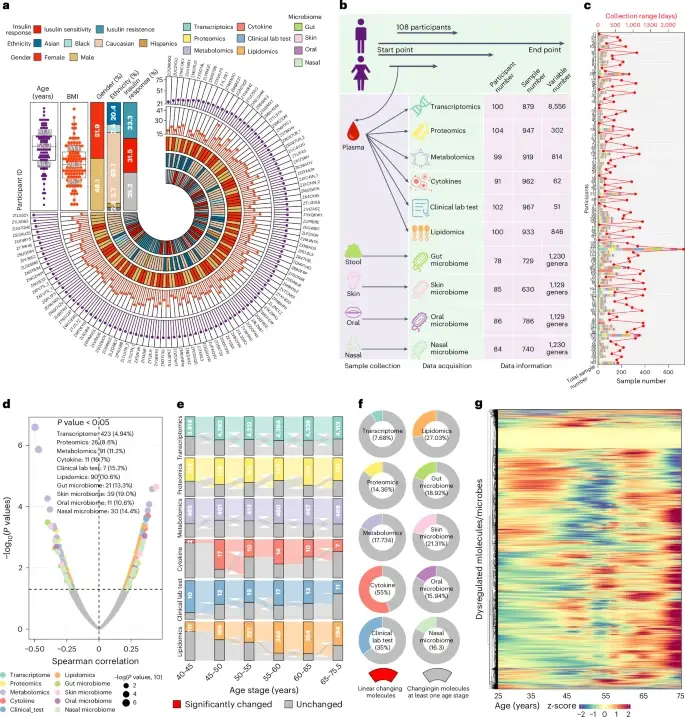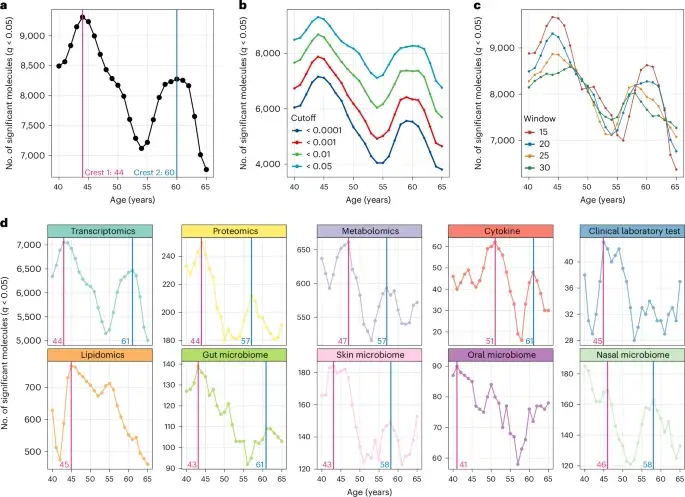
Scientists believe there are two main moments in life where you’re likely to age dramatically - and it might be sooner than you expect.
You may be surprised to hear but the human body doesn’t age at a constant, linear rate.
Instead, it spikes at certain ages in life, according to a new study published in the popular Nature journal.
On August 14, a report titled ‘Nonlinear dynamics of multi-omics profiles during human ageing’ became available to view.
Advert
The paper saw researchers revealing they had been studying more than 11,000 molecules in the adult body over time a period of 1.7 years.
The Stanford University scientists working on the paper gained these readings by tracking molecules in 108 diverse study participants’ blood, skin, and faeces.
It’s understood molecules were also tracked from mouth and nose swabs to assess how different factors, such as blood pressure and sugar levels varied over time.

According to the report, around 135,000 different molecules and microbes were studied, with researchers discovering the pair shifted around more commonly in two specific age groups.
Speaking about the paper, Professor Michael Snyder, a geneticist and director of the Center for Genomics and Personalized Medicine at Stanford University and senior author of the study said: “We’re not just changing gradually over time. There are some really dramatic changes.
“It turns out the mid-40s is a time of dramatic change, as is the early 60s – and that’s true no matter what class of molecules you look at.
“I’m a big believer that we should try to adjust our lifestyles while we’re still healthy.”

As per the study, 81 percent of the California cohort - aged 25 to 75 - underwent dramatic changes at two different ages - 44 and 60.
Many of the factors that shifted around these two ages were linked to heart health and showed declines in the participants’ ability to metabolize caffeine.
Moreover, the 44 and 60-year-olds showed high blood sugar levels and a protein linked to atherosclerosis - a build-up of fats and cholesterol on the artery walls - was increasingly spotted.
While the ageing spike at 44 usually coincides with the time some people with uterus’ start to go through perimenopause, one expert believes there are ‘likely other’ factors influencing the change.

Dr Xiaotao Shen, a former postdoctoral scholar at Stanford Medical School and first author of the study said: “This suggests that while menopause or perimenopause may contribute to the changes observed in women in their mid-40s, there are likely other, more significant factors influencing these changes in both men and women.”
Following the recently published studies, scientists hope the findings could help to target interventions for health issues such as coronary artery disease and muscle retention loss.
If you want to know more about when you’re likely to experience the ageing spike, you can check out the study here.
Topics: Science, World News
